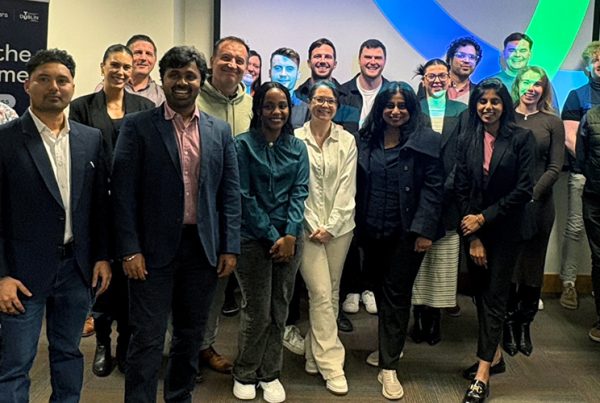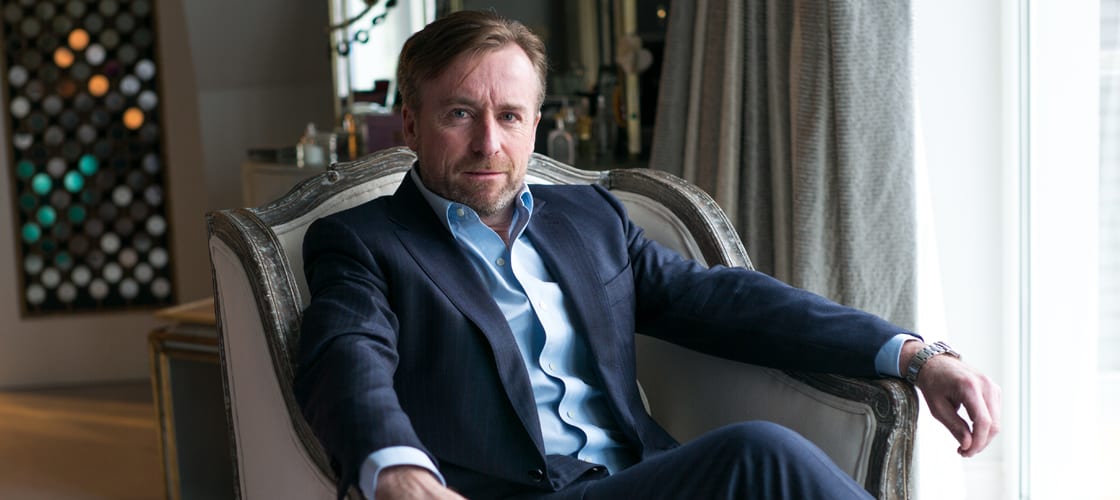

We’ve all seen Eamonn Quinn on Dragons’ Den, but what’s it really like to listen to a pitch and decide to invest? What does it take to be a successful investor and help young companies to mature and take on the world?
Eamonn’s father, Fergal Quinn, was the founder of Superquinn. Eamonn recall helping out at the supermarket chain from the age of 10, and by the time of its sale in 2005 he was Marketing Director and Deputy Chairman. After the sale, the Quinns set up a family office to run their investment portfolio, with interests in the food retail sector, green energies, and private equity funds.
They’ve invested in lots of businesses over the past decade, some of which are known and some early-stage projects which are more under the radar. Each investment relies on a greater or lesser level of involvement. Kelsius, for example, is a food safety business that Eamonn has been involved in developing, and which was a full time job for him until a CEO was recently appointed.
What are the most exciting developments you’ve seen in food retail recently?
“Food is going from just being a commodity to being an integral part of your health. People are really questioning what they’re eating now and are less and less satisfied with a mass-produced product at the lowest possible price. The market is definitely shifting towards nutrition and in some cases as far as ‘food as medicine’ with people trying to treat themselves for illness such as cancer through what they eat.”
The recent changes in food retail have certainly been a game-changer. Even hard discounters such as Aldi and Lidl now focus on traceability, provenance and selling Irish produce – and it’s a model they’ve adopted very successfully.
How have you enjoyed being on TV?
“In some sense it was a little bit of a return, because I had been on TV in the Superquinn days. Dragons’ Den is a little different, though. For one thing, it’s not live TV – you have the possibility of making a mistake because you can always do it again.”
With over 50 entrepreneurs standing before the dragons in any one series, the pressure is on to ask the right questions and get as much relevant information as possible in the allotted time. The danger lies in missing a fantastic opportunity because of a misunderstanding about the business proposition before them.
“The key to investing is an ability to listen. When someone is pitching, it’s important to identify the gaps, and see the issues they haven’t thought of.”
What should entrepreneurs remember when pitching for investment?
“The crucial thing that is likely to get the attention of investors is an alignment of interests. With early-stage funding, the key is ‘smart money’ – that’s an investor who isn’t just bringing cash to the table but who can offer guidance and mentoring, as well as a good knowledge of your sector that has the added benefits of insight, past experience and an existing network of contacts.”
What should entrepreneurs make sure to avoid when pitching?
“If I think they’re just looking for a job and they want me to pay for it, that’s definitely not going to go down well!”
What advice do you have for budding entrepreneurs like our New Frontiers participants?
“Talking your idea through with other people is the very first thing you should do. Even if it’s just friends and family, discuss your solution and make sure that a) the problem you’re solving really exists and b) your solution is an effective and efficient one.
“Test your idea with that initial group of 10 or 15 people, and if you’re still sure it’s a runner you can expand to a group of, say, 50 or 100 people and see what feedback you get from them. If your product or service is niche, make sure you’re talking to people with experience in that area.”
Does it get easier to identify the investments that will succeed?
“It’s not a science, obviously. Some products come in and you think ‘this isn’t going to work!’ but it turns out to be a fantastic success. You’ll always get unexpected shooting stars! But you do see the type of ingredients that make an idea more likely to succeed than not.”
Of course, there’s more to a good idea than just producing a nice product with nice packaging. The unseen hard work that goes into a business is what ultimately makes a difference. Looking back, Eamonn is in no doubt that the successful businesses he was involved in were the ones that paid attention to the details.
“Retail is detail! At Superquinn, stores had an Hourly Order Guide. Every hour, a manager would spot-check a random list of 100 items, which would give a good indication that everything was running smoothly. It’s details like those that are the difference between a good business and an average business.”
How would you describe your guiding philosophy when it comes to business?
“Failure is important. As an investor, you’re going to have more failures than successes, particularly with early-stage investments. There are a lot of things that can break a company at early-stage; sometimes it only takes one thing to go wrong and that’s the end of it. You have to take the knocks. As a rule of thumb, for every 10 ventures, you might be looking at 2 successes, 2 to break even and 6 are likely to fail.”
Clearly, there’s no exact science to investing. Having a culture where failure is simply a learning experience is usually extremely beneficial. Being able to ask why something didn’t work and what you could do better next time will inform your future decisions and help to avoid costly or damaging mistakes in the future.
“Sometimes, it’s just the market that changes – like during the crash – and there’s not a lot you can do about that, of course. But you can bring together the ingredients that give you the best chance: an understanding of your market and an analysis of your competitors and your own competitive advantage (even if it’s just for the short term).”
About the author

Scarlet Bierman
Scarlet Bierman is a content consultant, commissioned by Enterprise Ireland to fulfil the role of Editor of the New Frontiers website. She is an expert in designing and executing ethical marketing strategies and passionate about helping businesses to develop a quality online presence.
Recent articles
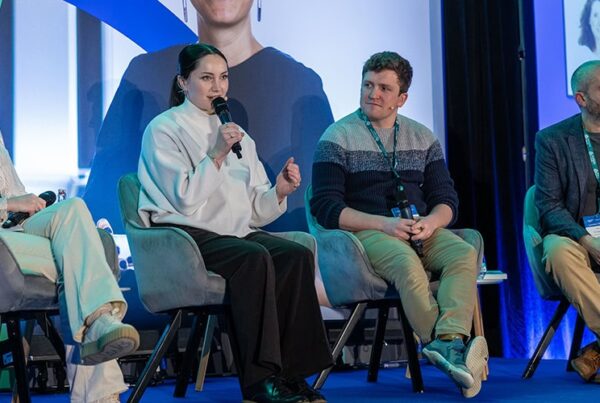
The New Frontiers Programme Connects 158 Founders With Success Stories

Raise Your Startup’s Visibility & Credibility By Entering These Competitions

Founder Perspectives: Lessons From Building Businesses In Sustainability

Tech Startups In The Age Of AI: Alumnus Paul Savage On Speed, Quality & Risk
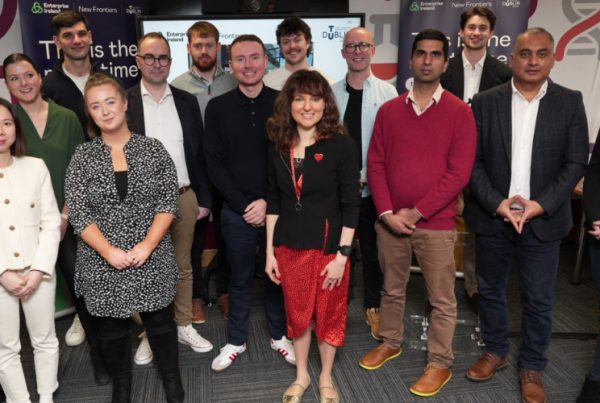
Fourteen Startup Founders Graduate From Phase 2 Of New Frontiers In Tallaght
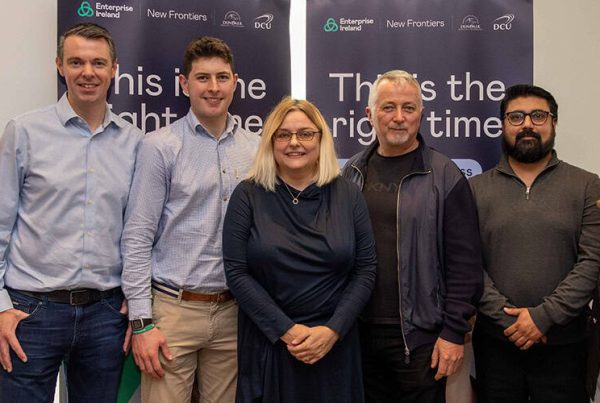
Eleven Founders Graduate From New Frontiers In The Border Mid-East Region

Laying The Right Groundwork Helps Startups Prepare For Export Success
